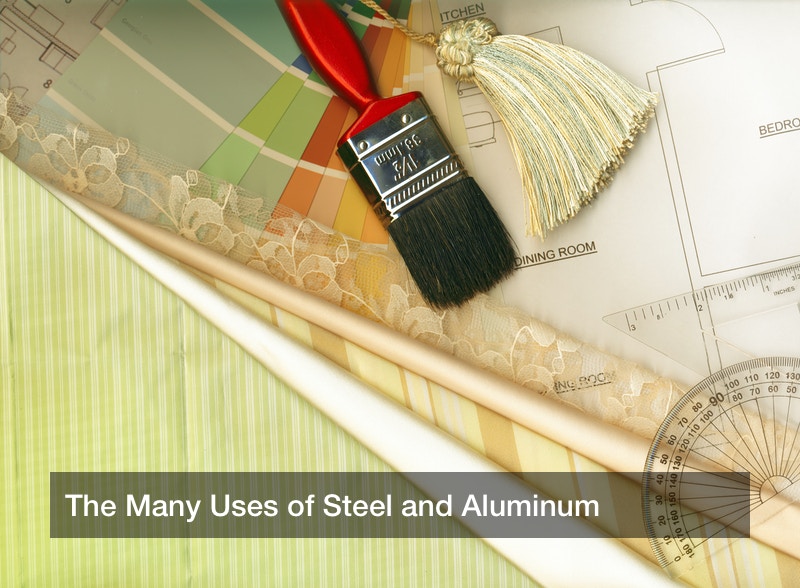
Metals of all kinds are vital for construction in nearly every sector there is, and in fact, metals have been an essential building material since long before the written word. Several prehistoric eras are named after the most commonly used metals of the time, such as the Iron Age and the Bronze Age. Fast forward to the Industrial Revolution, and the mass production of steel greatly accelerated manufacturing in the developed world, especially in England, Germany, and the United States. Today, steel, aluminum, and copper are among the most commonly used metals, including their alloys such as 3003 aluminum and thin steel sheets of copper alloys or 70 30 cupro nickel. Brass and copper alloys prove popular too, and they can perform jobs that steel or 3003 aluminum cannot.
Steel and Aluminum
Thin metal strips or huge rolls of steel and 3003 aluminum are quite useful for most manufacturing industries today, all around the world. In fact, steel is one of the most widely used (and widely recycled) materials there is. Today, the United States manufactures, uses, exports, and imports a great quantity of steel, and it often received imported steel form Canada, China, and Germany. The worldwide sheet metal industry is growing at an average rat of 4.09%, and this growth may take place from 2018 to 2022, and possibly beyond. Stainless steel is vital for making cutlery and surgical equipment, and such steel can easily resist rust and corrosion on the job. Meanwhile, hot rolled steel is steel that passed through pressurized rollers at a high temperature, and it is useful for making railroad tracks, I-beams, and similar goods. If hot rolled steel is then passed through rollers again at room temperature, it becomes cold rolled steel, which has precise dimensions and a protective coat. Such steel is ideal for making manufactured goods of all kinds, such as car parts or electrical appliances.
What about aluminum and its alloys, such as 3003 aluminum? Aluminum is also widely used, and it often has a presence in electronic goods and household appliances. And aluminum is even lighter than steel, so it is useful for making lightweight vehicles that are quite fuel efficient. Car rims are often made out of aluminum, for example. As for the 3003 aluminum alloy, it has a high strength and can be cold worked, and it contains manganese. For the most part, this is an all-purpose alloy with great strength, workability, and even corrosion resistance. Typically, it is used in sheet metal applications such as housing siding, metal roofs, gutters, and downspouts.
Copper
Steel and aluminum are quite useful, but some jobs call for copper, which has unique properties to offer. Most cables and wires today are made out of copper, which can easily transmit electricity (for power cords) and electrical impulses for USB cables and ethernet cables. Copper is also used to make many household goods, ranging from faucets in a sink to doorknobs and handles, to locks and hinges. In more industrial applications, copper is useful for making micro-chips for computers, hydraulic lines, undersea pipes (often in alloys), and piping at distillation plants. Perhaps one of the most famous uses of copper is the Statue of Liberty, which was made of this metal in the 1800s and has countless rivets also made from copper. It was originally a typical bronze color, but exposure to air turned it a distinct green color. This is a natural process.
Alloys and Their Uses
Some jobs call for metals even more specialized than 3003 aluminum or copper, and this is where alloys, or composite metals, come in. They can be made from various ingredient metals such as steel and iron, copper, brass, nickel, aluminum, titanium, and more. Alloys offer unique properties and are often designed with particular work in mind. Some alloys are used to make ultra-tough military vehicles or components, such as submarine hulls or missiles, and other alloys are used on space shuttles to endure extremes of heat and pressure. In a chemical refinery plant, alloys are used to build tanks, pipes, valves, and pumps, and these alloys can resist corrosion for a long time. Alloys are often used to make metal bellows, flexible metal tubes that must not rupture despite pressure changes or heat extremes.
